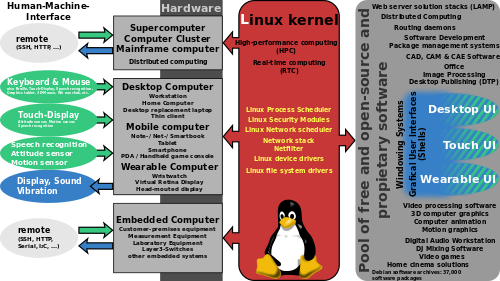

Steven J. Vaughan-Nichols, a longtime critic of Microsoft, calls the bugfix release of Vista 8 "more Windows fail," noting of course what we've stressed since last year. Microsoft made too radical a change to Windows, so due to retraining costs it might be worth for businesses to just make the migration to GNU/Linux, not 'upgrade' to Vista 8.x. To quote Vaughan-Nichols:
My assessment: Windows 8.1 doesn't suck as much as Windows 8. If you felt, when using Windows 8, as if you were banging your head against a brick wall, Windows 8.1 might feel as if you're banging it against a wooden wall. Much better, right? Of course, someday you might ask yourself why you need to bang your head against a wall at all.
Let's start with Start. Yes, we've all heard that Microsoft is bringing the Start button back, responding to all those users shrieking about its disappearance. So that's better, right? Not so much. All that the new Start button does is bring up the touchy-feely Metro -- uh, I mean, Modern -- no, wait, make that "Windows 8 Store apps" interface. Is it any wonder that Lenovo bundles the Pokki Start button and menu replacement software with its Windows 8.x machines?
About that interface name: Windows 8 Store apps. Really? Could it be any lamer? Tell me, is there any way Ballmer can be shoved out the door faster?
The "year of the Linux desktop" has been prophesied by Linux supporters almost every year for the last decade. This was once a lofty goal in the Microsoft-dominated enterprise, but times are changing. Linux has grown into a formidable competitor in the smartphone and cloud computing markets, which has caught Microsoft off guard. More importantly, Google, IBM, Red Hat, Facebook, and Netflix have made huge investments into Linux innovations.
Should Linux Replace Windows XP? Windows XP is headed for the scrap heap, should Linux be used to replace it on older computers? TechRepublic takes a look at this question, and comes away with a negative point of view.